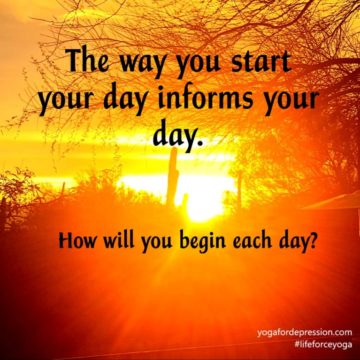
Tis the season…for depression, loneliness, and anxiety. This is supposed to be the happiest time of the year, right? So why do I not feel that way? If you find yourself asking that question, you are not alone. The Holiday Blues are a real thing! But it may only be temporary. Read on for 3 tips to help manage the holiday blues.
A survey from the National Alliance on Mental Illness reports that 64% of people diagnosed with a mental illness experience a worsening in their condition during the holidays (2014). Whether your experience is temporary or an exacerbation, know that you are not alone. Millions of people suffer during the holidays.
There are many reasons that people suffer during the holiday season: mental illness, loss, isolation, lack of family, homelessness, trauma, seasonal affective disorder, illness, poverty, etc. Rather than focus on the whys, let’s turn our attention to what helps free us. This is not about curing the holiday blues, rather it is creating space between who you really are and the suffering and constriction of the holiday blues. Visit NAMI’s website for more tips.
Community
The Holiday Blues can disrupt relationships and connection with others is an important part of mental wellness. If you want to stay mentally and physically healthy, community is key. For those of us that are introverts, this does not mean you have to start going to parties (whew!). Connection with others, one-on-one or in a group, releases the hormone oxytocin in the brain. Oxytocin, the feel-good hormone, is released during things like appropriate touch, intimacy, bonding (like breast feeding an infant), laughter, AND yoga. While we don’t know the full effects of oxytocin, there is a relationship between its presence/release and a decrease in anxiety and depression. There are ways to release this feel-good hormone on your own, laughter and loving visualization, it’s better with others. Plus, being among people helps alleviate feelings of isolation.
Developing your community:
- Who is your tribe?
- What is one simple thing you can do to spend time with like-minded individuals?
- Have you thought about volunteering during the holidays? Compassion can help release oxytocin.
- How about connecting with a friend?
Find your tribe and support on your journey in the Yoga for Mental Health Facebook group. Here you will find people on the journey to mental wellness, tips, inspirational quotes and pictures, research, and new friends. We hope you will join us!
Schedule
 I know that for me, having a normal routine helps me feel stable. Without one, I can get a little aimless and overwhelmed with what I must do. Finding and developing a schedule helps give purpose and structure to the day. From a goals oriented standpoint, having a schedule will help you get where you envision yourself in the future.
I know that for me, having a normal routine helps me feel stable. Without one, I can get a little aimless and overwhelmed with what I must do. Finding and developing a schedule helps give purpose and structure to the day. From a goals oriented standpoint, having a schedule will help you get where you envision yourself in the future.
- Make a list of your daily tasks. What are you already doing every day? Is there something you need more of? What is something you don’t need on this list? You can be as detailed as you want. Perhaps you wish to schedule wake up and bed times.
- Self-care. Go back to your list and make sure that you have physical and spiritual self-care as a part of your daily tasks. Physical self-care includes bathing, pampering, mindful eating, walking, exercise, grounding, earthing, outside time, yoga, dance, movement, massage, etc. Spiritual self-care includes affirmation, meditation, yoga, chanting, sacred text reading, outside time, attending services, etc. Hint: schedule your self-care three times a day, it doesn’t have to be more than five minutes if you are crunched for time.
- Create a schedule. Organize your list into morning, midday, and evening. Start putting your tasks in the appropriate areas for where you know you have the energy to complete those tasks. Morning people are most productive earlier in the day. Night owls reach peak creativity at 9/10pm. Honor your energy flow for getting things done.
- Add in flexibility. Schedules are wonderful, but if you can’t stick to it, you won’t feel good about yourself. Make sure you have ample time to complete tasks. If you are creating a schedule for the first time, it will need refinement in action. If something takes you 15 minutes to complete, schedule 30 minutes.
- Find an accountability partner. Who is available that can help keep you on track? Invite a friend to join you in this process. Once you both have schedules, check-in with each other. If you feel like you don’t want to stick to the plan, reach out, your partner is there to help you.
Yoga Practice
Of course I am partial to Yoga. It is what saved me from suffering and what continues to keep me balanced and at ease. Yoga is a physical and spiritual practice. It moves the body and helps you reconnect to who you really are. How you move the body in your yoga practice is up to you. The benefits of a daily yoga practice on the body, heart, mind, mental health, and soul, are numerous and the evidence for the advantages of yoga grows daily.
What can you do to build a daily yoga practice:
- Start small. Pick an easy practice and do it every day. You can find many simple practices in our Free Mood Management Practice section of the website.
- Set up a yoga space in your house for your daily practice.
- Commit to going to a class once a week. Getting a friend to go with you makes it even easier.
- Practice at home with a yoga DVD, CD, or learn how to do the practices on your own.